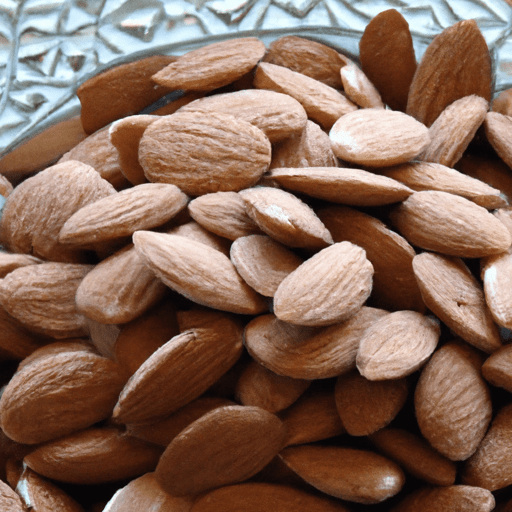The Versatile Delicacy: Slivered Blanched Almonds
Almonds have long been cherished for their exceptional taste and nutritional value. Among the various forms of almonds, one that truly stands out is slivered blanched almonds. These thin, delicate slices of almonds offer a unique texture and flavor that elevate a wide range of dishes. In this blog post, we will delve into the exquisite world of slivered blanched almonds, exploring their taste, common uses in cooking, nutritional benefits, as well as some interesting history and facts.
The Taste of Elegance
Slivered blanched almonds possess a subtly sweet and nutty flavor that is more delicate compared to their whole counterparts. The blanching process removes the skin, resulting in a smooth, ivory-colored nut. When slivered, these almonds become tender and offer a delightful crunch. This combination of taste and texture makes them a fantastic addition to both sweet and savory dishes.
Culinary Magic at Your Fingertips
The versatility of slivered blanched almonds makes them an essential ingredient in various culinary preparations. Here are just a few of the many ways you can incorporate these heavenly nuts into your cooking:
1. Baking Bliss
Slivered blanched almonds shine in baked goods, adding a delightful crunch while delicately fragrancing the final product. From cookies and muffins to cakes and tarts, these almonds lend a touch of elegance and sophistication to any confection. Sprinkling a handful of slivered blanched almonds on top of a fruit cobbler or a glazed pastry creates a visually appealing dish with an irresistible taste.
2. Salad Sensation
Salads can transform from ordinary to extraordinary with the addition of slivered blanched almonds. Their delicate crunch provides contrast to the greens and other ingredients, while the mild nutty flavor complements a wide range of dressings. Whether tossed into a leafy green salad for an added textural element or combined with fresh fruits for a sweet and savory salad, the results are simply exceptional.
3. Savory Delights
Not limited to sweet dishes, slivered blanched almonds also have a place in savory creations. They make an excellent addition to stir-fries, rice dishes, and vegetable sautés, creating a satisfyingly crunchy element. Sprinkle these almonds over roasted vegetables or use them as a topping for casseroles to add depth and a touch of gourmet flair.
Nutritional Benefits in Every Bite
Aside from their culinary prowess, slivered blanched almonds offer numerous health benefits. Rich in essential nutrients, they are an excellent source of healthy fats, protein, fiber, vitamins, and minerals. These nutrients contribute to heart health, weight management, and improved digestion. Incorporating slivered blanched almonds into your diet can enhance your overall well-being and provide you with a nutrient-packed energy boost.
A Peek into History and Fascinating Facts
Did you know that almonds have been consumed for thousands of years? They were highly prized by ancient civilizations such as the Egyptians, Romans, and Greeks. Almonds are believed to have originated in the Mediterranean region, with extensive cultivation dating back to 3000 BCE. In fact, slivered almonds were a common ingredient in medieval European cuisine, often used in extravagant dishes prepared for noble banquets.
Conclusion
Slivered blanched almonds are a culinary treasure, offering a delicate taste, pleasant crunch, and an array of uses. From enhancing the flavors of baked goods to complementing savory dishes and providing a health boost, these nuts are a versatile and nutritious addition to any kitchen. So why not embark on a culinary adventure and discover the culinary enchantment that slivered blanched almonds can bring to your cooking repertoire?
Slivered Blanched Almonds:
Origin: Almonds are believed to have originated in the Middle East and Central Asia. These nuts have been cultivated for thousands of years and are now commercially produced in many countries, including the United States, Spain, Iran, and Italy.
Common Uses: Slivered blanched almonds are widely used in various culinary applications. They are often used as a topping or garnish in salads, cereal, yogurt, or baked goods. These slivered almonds are also commonly used in creating almond butter, almond milk, or almond flour.
Nutritional Benefits: Slivered blanched almonds are highly nutritious and provide several health benefits. They are an excellent source of healthy fats, including monounsaturated fats, which can support heart health. Almonds are also a good source of dietary fiber, protein, vitamin E, magnesium, and calcium. Additionally, they are naturally gluten-free and low in carbohydrates, making them suitable for various dietary choices.
Unique Properties: Slivered almonds are created by removing the skin from the almonds, revealing the light-colored, creamy flesh underneath. The slivered shape adds a delicate and visually appealing element to dishes, while the blanching process helps retain the almonds’ natural texture and flavor. The mild, slightly sweet taste and tender crunch of slivered blanched almonds make them a versatile ingredient in both sweet and savory recipes.
Historical Significance: Almonds have a long history and have been valued for their taste and nutritional properties for centuries. They played an important role in the diet of ancient Mediterranean civilizations and were mentioned in ancient texts such as the Bible and the Quran. Almonds were also used for their oil in ancient Egypt for various purposes, including skincare and culinary applications. Over time, almonds spread throughout different civilizations and are now enjoyed worldwide.




Use the share button below if you liked it.
It makes me smile, when I see it.